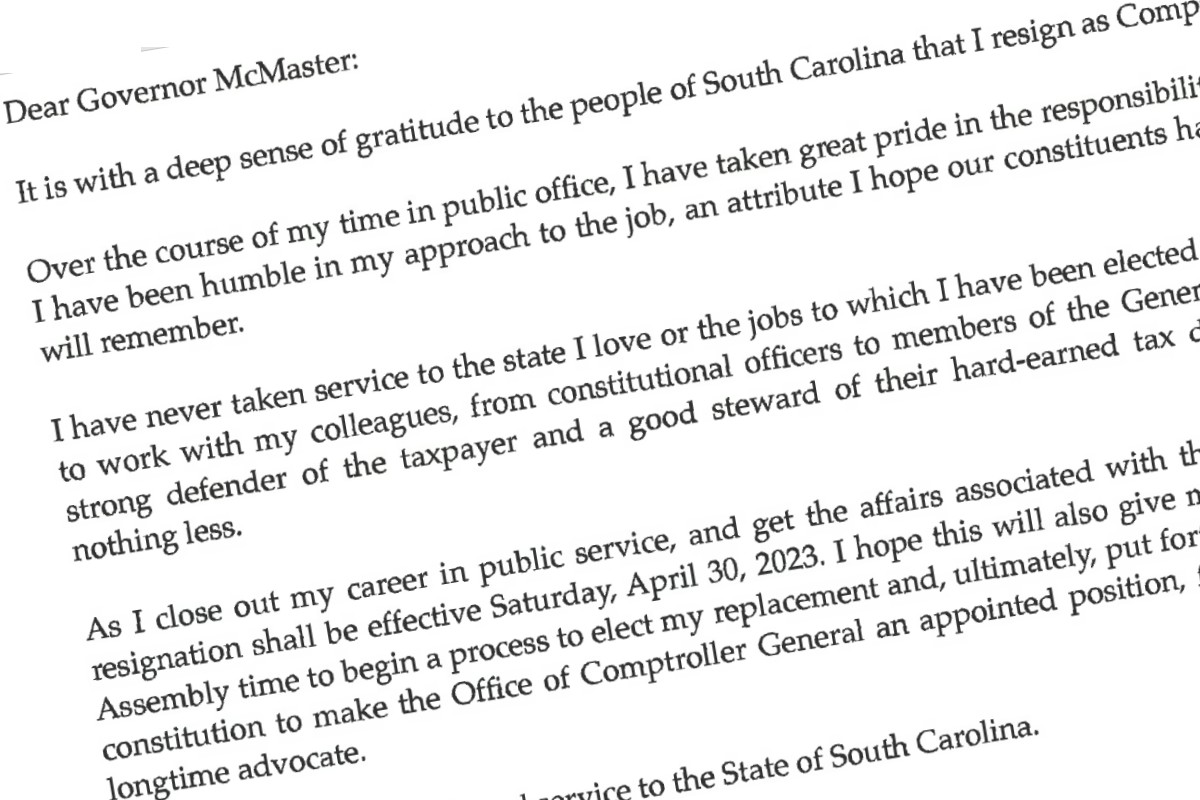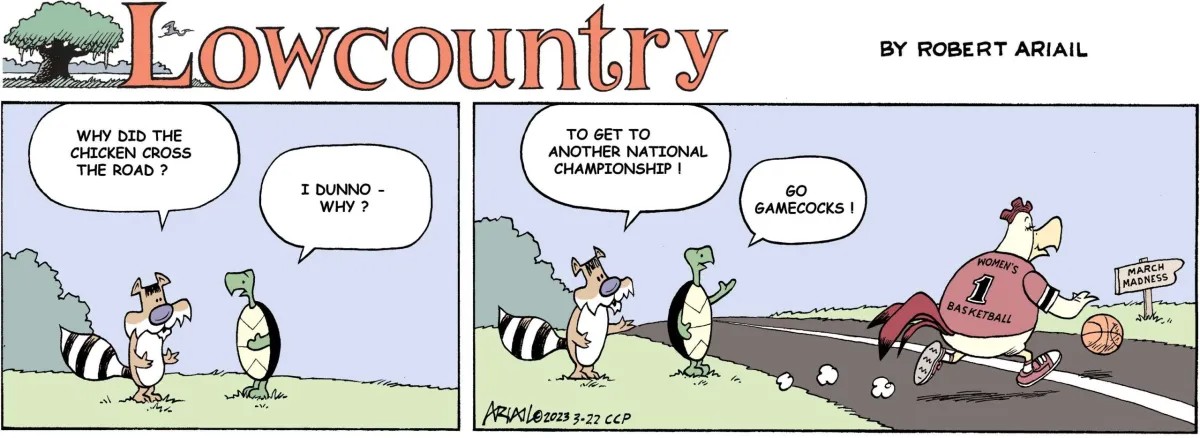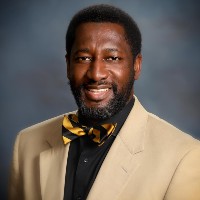STATEHOUSE REPORT | ISSUE 22.12 | March 24, 2023
NEWS: Eckstrom resigns as comptroller general after $3.5B error
NEWS BRIEFS: Audit says disability agency might be better in governor’s cabinet
LOWCOUNTRY, Ariail: March madness
COMMENTARY, Brack: Wake up about inanity of “wokeness”
SPOTLIGHT: The S.C. Education Association
MY TURN, Green: Do school choice advocates really believe in school choice?
FEEDBACK: Loved your Freedom Caucus column
MYSTERY PHOTO: Old gas station
Eckstrom resigns as comptroller general after $3.5B error

By Andy Brack | Beleaguered Republican S.C. Comptroller General Richard Eckstrom tendered his resignation Thursday just weeks after reporting a $3.5 billion accounting error that rollicked the Statehouse.
“Nobody lost one dollar,” one insider told the City Paper in February. “Nobody embezzled one dollar. It’s simply a reporting error.”

But its impact — in its political embarrassment and how national rating agencies might impact the state’s credit rating — eventually was enough for Eckstrom to resign as of April 30 in a letter today to Gov. Henry McMaster. The governor accepted the resignation.
In the letter, Eckstrom wrote, “I hope this will also give members of the General Assembly time to begin the process to elect my replacement and, ultimately, put forth an amendment to the constitution to make the Office of Comptroller General an appointed position, for which I have been a longtime advocate.”
If the office is devolved from being an elected constitutional position, its responsibilities, which include assembling the state’s annual financial report, could be moved to other agencies, such as the Attorney General’s office, the Treasurer’s Office and the Department of Administration, according to an earlier report by The State.
Eckstrom, a former state treasurer who was elected to be the state’s accountant in 2002, admitted in February that the state overstated its cash balances by $3.5 billion over the last 10 years because of double-reporting by his office of some of its spending.
Pressure has been mounting for Eckstrom’s resignation. Last week, state senators said in a report that Eckstrom should be fired for the accounting error and the office changed.
“To ensure accuracy in the state’s finances, all the duties of his office need to be transferred immediately to one or more agencies that will produce documents that we can rely on and have confidence in,” state Sen. Larry Grooms, R-Berkeley, said at the time.
But for a few days, Eckstrom held on after a statement in which he said, “I strongly disagree with the findings of the senators.”. “I will not be distracted by anyone from the work ahead of us, work voters elected me to do during this term.”
About the error
State budget experts emphasize the error wasn’t a shortfall — that the state didn’t lose $3.5 billion of tax dollars — but that the Comptroller General’s office essentially twice counted money transferred to the state’s colleges and universities as a new computer system was installed.
When it wasn’t caught initially, it kept making the same wrong assumption, year after year. Essentially, it kept revenue on its reports after it had already been transferred, making it appear in post-budget spending analysis reports that the state had more of a surplus than what was accurate.
Reports from the Comptroller General’s office reflect past spending and don’t direct current or future spending. In fact, state budget writers use projections from a different office to make budgeting decisions and don’t rely on Eckstrom’s reports of what happened to spending after money has been spent.
Reactions are swift
State leaders quickly reacted to news of Eckstrom’s resignation.
S.C. Rep. Heather Bauer, a freshman Democrat from Columbia, was successful last week in getting the House to adopt a budget amendment to cut Eckstrom’s salary to $1.
“Comptroller General Richard Eckstrom made the right decision by stepping down,” she said today. “The multi-billion dollar mistake he made was inexcusable. Now, the House and Senate must continue the investigation into the accounting error and add guardrails to make sure this never happens again.”

McMaster thanked Eckstrom for his service and friendship.
“The Eckstrom and McMaster families have been dear friends for decades,” the governor said in a statement. “I know that your every wish has been, and always will be, prosperity and happiness for the people of South Carolina. Your 24 years of dedicated and honorable service in the constitutional offices of treasurer and comptroller general have been widely recognized, and your contributions too numerous to list.”
House Speaker Murrell Smith, R-Sumter, said he recognized and respected Eckstrom’s decision.
“I commend him for many years of public service, while also recognizing his decision is in the best interest of our state,” Smith said.
State Treasurer Curtis Loftis, a Republican whose office eventually could inherit some of the comptroller general’s responsibilities, also thanked Eckstrom.
“I am also thankful for the oversight that has been provided by the General Assembly,” he said in a statement. “The state is better off for their efforts.”
- Have a comment? Send to feedback@statehousereport.com
Audit says disability agency might be better in governor’s cabinet
Staff reports | The state Legislative Audit Council is recommending the state Department of Disabilities and Special Needs (DDSN) to become a cabinet agency after three general findings: the current agency’s structure is unique compared to other states; “inappropriate behavior” by current commissioners; and a boost in commission expenses.
 “The current Commission has overreached in its role, may have violated state law, and has exhibited inappropriate behavior,” auditors wrote in a 46-page report. “These are other indications that change is needed to the agency structure.” In a response, three commissioners agreed to study a change.
“The current Commission has overreached in its role, may have violated state law, and has exhibited inappropriate behavior,” auditors wrote in a 46-page report. “These are other indications that change is needed to the agency structure.” In a response, three commissioners agreed to study a change.
Among the issues:
The agency’s unique structure. Auditors say South Carolina operates its disability agency differently than any other state and could benefit as a new cabinet agency under the governor’s office. “We have confirmed that no other state has an independent state disability agency governed by a commission, like South Carolina,” the report said. “Also, we found that there are fewer than 10 standalone disability agencies nationwide.”
Inappropriate commissioner behavior. The report said members of the seven-person commission “may have violated state open meetings law and has exhibited inappropriate behavior.” Of concern in the report were allegations of violating state open meetings laws, micromanagement and interference with staff.
Increase in commission expenses. The report said it found some frivolous spending on items for commissioners, inadequate expense documentation, and increased per diem and travel reimbursements. “Per diem and travel expenses related to the Commission have increased 60% from 2016 to 2021, the report said. “The Commission held more meetings in 2021 than in 2016, 2017 and 2018 combined.”
In a response for the agency, Interim State Director Constance Holloway said the audit’s 23 recommendations would be taken into consideration by the agency, which would work to make appropriate changes.
Three commissioners, she wrote, “all agree that the best course of action for DDSN moving forward would be for the agency to be made a part of the governor’s proposed $5 million Restructuring Study and Plan for Health Agencies … [which] would provide a comprehensive plan for DDSN and provide better insight as to whether the commission should be eliminated.”
In other news this week:
![]() Ethics Committee reprimands Graham for solicitations. The U.S. Senate Ethics Committee has admonished U.S. Sen. Lindsey Graham, R-S.C., for soliciting campaign contributions for Georgian Herschel Walker inside a federal building after a November 2022 Fox News interview. Members of the panel said Graham violated Senate rules and standards of conduct by conducting the interview in a Senate office building.
Ethics Committee reprimands Graham for solicitations. The U.S. Senate Ethics Committee has admonished U.S. Sen. Lindsey Graham, R-S.C., for soliciting campaign contributions for Georgian Herschel Walker inside a federal building after a November 2022 Fox News interview. Members of the panel said Graham violated Senate rules and standards of conduct by conducting the interview in a Senate office building.
S.C. Senate OKs bill barring foreign adversary land ownership. The S.C. Senate passed a bill Thursday that would bar citizens of “foreign adversary” nations from buying property in the state.
S.C. senators renew push to split DHEC. South Carolina senators are renewing a call to split the major health organization after the shortfalls it had last year.
Proposed bill could loosen regulations on S.C.’s craft beer industry. A bill advancing at the Statehouse would let beer drinkers take more of their favorite craft brew home from South Carolina breweries.
S.C. lawmaker pitches voluntary no-sell list to curb gun suicides. A new bill introduced March 15 in the S.C. Senate aims to reduce the number of people who kill themselves with guns by creating a voluntary do-not-sell list for firearms.
Former U.S. Rep. Jenrette dies at 86. Former U.S. Rep. John Jenrette, a Grand Strand Democrat who spent time in prison following the Abscam scandal, died Friday at age 86.
5 dead in gun violence at Sumter home. A former soldier shot and killed three children, including two of his own, as they slept in their Sumter home Tuesday night. He also killed an Army soldier who worked with his ex-wife before shooting himself. Authorities said the active-duty soldier had no relationship with the ex-wife other than as co-worker.
March madness

Robert Ariail celebrates the No. 1 USC Lady Gamecocks, now in the throes of the NCAA basketball tournament. Will they repeat this year? Ariail often interprets things a little differently, but always has an interesting take on what’s going on. Love the cartoon? Hate it? What do you think: feedback@statehousereport.com.
Wake up about inanity of “wokeness”

By Andy Brack | Somebody at a book event recently asked, “Are you woke?”
 My response: “Just what in the hell does that mean?”
My response: “Just what in the hell does that mean?”
Her response: Deer-in-the-headlights. She didn’t know. She sputtered and changed the subject.
But this kind of silliness is going on too much. She was just yammering about something she’d heard from talking heads on television or from some lemming politician spouting off to further the nation’s culture wars. Pitiful.
If you have become enamored with using the word “woke” to describe what’s happening in politics, it’s time to, well, wake up. You’re being used by language.
“Wokeness” is nothing more than a manufactured linguistic frame to stir and steer your thoughts in ways that are a modern-day conservative equivalent of those hippies who looked at the world through “rose-colored glasses.”
MAGA-enhanced Republicans on language steroids are trying to get you to believe that regular Americans who are kind, inclusive, thoughtful and who respect diversity and freedom are little more than pawns in a cabal to take away your guns, gender and religion. Hogwash.
What these zealots really want you to do is step back in time to an America filled with more racism and less opportunity. They want a new-day version of plantation economics and society built on fundamentalism, fear and a convenient rewrite of history that ignores the American dream for all, regardless of skin color or economic status. When it comes down to brass tacks, they want our shining experiment with democracy and our envied marketplace for ideas and capitalism to fail, only to be replaced by an autocratic tyranny.
Resist.
Linguist George Lakoff wrote a popular 2004 political manifesto for progressives on how to frame issues politically. The book, Don’t Think of an Elephant: Know Your Values and Frame the Debate, instantly highlights the power of words — once you’re told to not think of an elephant, you can’t get the image of an elephant out of your head.
Now almost 20 years later, elephantine conservatives have hoisted progressives on Lakoff’s linguistic petard with all of this “wokeness” nonsense — insisting that Americans reinterpret how they think of culture in a cynical and fully transparent ploy to brush past reality.
What’s sad — and kind of funny — is that conservatives use this “woke” language without being able to explain it, much like the woman who asked me the question. Fox News talk show host Dana Perino couldn’t give a clear definition recently, eventually likening it to a “feeling” like a Supreme Court justice’s description of obscenity — “I know it when I see it.”
Right-wing author Bethany Mandel looked absolutely terror-stricken earlier in the month when asked to define “wokeness” — the topic of a book she wrote. Later, she claimed her darting eyes and nervous swallowing were just part of a panic attack during the interview. Yeah, right. Meanwhile, the viral video clip led comic book writer Dan Slott to joke, “The far right is starting to use ‘woke’ in the all-purpose way that Smurfs say ‘smurf.’”
Republican presidential candidates, desperately trying to stir audiences, throw about wokeism like beads at Mardi Gras to attack progressives and political correctness. Former S.C. Gov. Nikki Haley, for example, recently pandered, “Wokeness is a virus more dangerous than any pandemic, hands down.” Really? The term comes up frequently in speeches by former President Donald Trump and Florida Gov. Ron DeSantis. It’s like they have a new word toy and can’t keep from playing with it.
Most Americans see through the nonsense. According to a recent USA Today/Ipsos poll, 56% of people surveyed — including a third of Republicans — said wokeness meant “to be informed, educated on and aware of social injustices.” They didn’t buy the conservative wordsmithing link to political correctness.
“Most Americans understand that to be woke is to be tuned in to injustices around us,” Ipsos pollster Cliff Young said in one report. “But for a key segment of Republicans who make up the Trump-DeSantis base, ‘woke’ is a clear trigger for the worst of the politically correct, emerging multicultural majority.”
Don’t get fooled that “wokeism” is a real thing. It’s something they want you to believe.
Andy Brack, recognized as the state’s best columnist in 2022 by the S.C. Press Association, is editor and publisher of Statehouse Report and the Charleston City Paper. Have a comment? Send to feedback@statehousereport.com.
The S.C. Education Association
 The public spiritedness of our underwriters allows us to bring Statehouse Report to you at no cost. This week’s spotlighted underwriter is The South Carolina Education Association(The SCEA), the professional association for educators in South Carolina. Educators from pre-K to 12th grade comprise The SCEA. The SCEA is the leading advocate for educational change in South Carolina. Educators in South Carolina look to The SCEA for assistance in every aspect of their professional life. From career planning as a student to retirement assessment as a career teacher, The SCEA offers assistance, guidance, and inspiration for educators.
The public spiritedness of our underwriters allows us to bring Statehouse Report to you at no cost. This week’s spotlighted underwriter is The South Carolina Education Association(The SCEA), the professional association for educators in South Carolina. Educators from pre-K to 12th grade comprise The SCEA. The SCEA is the leading advocate for educational change in South Carolina. Educators in South Carolina look to The SCEA for assistance in every aspect of their professional life. From career planning as a student to retirement assessment as a career teacher, The SCEA offers assistance, guidance, and inspiration for educators.
- Learn more: TheSCEA.org
Do school choice advocates really believe in school choice?

By Dr. J.R. Green, Fairfield County superintendent | The South Carolina Senate recently passed S.39, a controversial voucher legislation that proposes to provide parents up to $6,000 per year of state money to attend a private school.

At full implementation by year three, the voucher program will cost approximately $90 million per year. Proponents of the legislation suggest that school vouchers empower parents to select the school that best fits the needs of their children. But does this legislation actually empower parents or private schools that will ultimately benefit from the infusion of state revenue?
The undisputed fact is that S.39 will provide private schools with state revenue, yet allow those same private schools to pick and choose the students they elect to serve. In essence, we are providing private schools with public money – without a commitment to serving the public student.
I respect any parent’s right to choose the educational option they see is best for their child. However, receiving public funding should obligate these institutions to serve all public school students, just as public schools are required to do. Private schools who receive this funding should not be allowed to deny students because they are exceptional education students, failed to meet qualifying scores on entrance exams, level of parent participation, etc. All students who request admission should be accepted.
Amendments were offered during the debate of S.39 that would ban discrimination based on religion or disability. Those amendments were rejected and as a result would allow a private school receiving state revenue to deny a student because of an intellectual disability or physical handicap.
This is the current reality for private schools in South Carolina, and I respect their right to restrict enrollment, as long as the school is being funded with private money. However, the acceptance of state money must require a different standard. During the Senate subcommittee hearing debating the voucher legislation last year, I shared the published admission criteria for a local private school. The school clearly outlined the following:
- Does not provide a program of study and support for students with learning disability, an IEP, or 504 plan.
- Married students, pregnant students and or biological parents will not be allowed to attend.
- Reserves the right to reject any application for admission or employment and further reserves the right to terminate any association with students if it determines that such association is incompatible with the aims and purpose of the school
This clearly represents private school “choice” not parental “choice.”
Finally, since the Education Accountability Act of 1998, the General Assembly has touted the benefits and necessity to administer yearly assessments to public school students. These assessments have been advertised as the key to improving education outcomes in South Carolina, and essential to ensuring the public can readily measure the return on the education investment.
I’m perplexed as to why the private schools that would receive public funding would not participate in the same system of accountability? Why would these schools not be required to administer the same state assessments, and publish their data just as public schools are required to do? If this system of accountability is necessary and appropriate for public schools, it should be necessary and appropriate for private schools accepting public funding.
Although I think the legislation is unconstitutional and represents little value to improving student outcomes, if the South Carolina General Assembly is committed to making school vouchers a reality, these schools must be accessible to all students, and accountable to the public just as public schools. Let participating schools open up their doors to all students, administer and publish the same assessments as public schools, and let the chips fall as they may.
Dr. J.R. Green is superintendent of Fairfield County Schools.
Loved your Freedom Caucus column
To the editor:
![]() We don’t always see political things the same way, but you nailed it in your Freedom Caucus rant today.
We don’t always see political things the same way, but you nailed it in your Freedom Caucus rant today.
My weekly legislative newsletter will be out soon with my own rant. I offer readers a link to your column. I’ve already put it up on my website.
– S.C. Rep. Bill Taylor, R-Aiken
Send us your thoughts
We encourage you to send in your thoughts about policy and politics impacting South Carolina. We’ve gotten some letters in the last few weeks – some positive, others nasty. We print non-defamatory comments, but unless you provide your contact information – name and hometown, plus a phone number used only by us for verification – we can’t publish your thoughts.
Have a comment? Send your letters or comments to: feedback@statehousereport.com. Make sure to provide your contact details (name, hometown and phone number for verification. Letters are limited to 150 words.
Old gas station

This old gas station may look familiar to some of you, but tell us where it is and whether it has any political significance. Send us your guess – as well as your name and hometown – to feedback@statehousereport.com.
 Last week’s photo, “Neon hammer” was sent to us by Barry Wingard of Florence. It shows a big hammer that motorists in the Scranton, S.C., area frequently pass.
Last week’s photo, “Neon hammer” was sent to us by Barry Wingard of Florence. It shows a big hammer that motorists in the Scranton, S.C., area frequently pass.
Allan Peel of San Antonio, Texas, told us more: “Today’s mystery photo is of the larger-than-life sign of a hammer that attracts attention to the Big Hammer Home Supply store, a hardware store that focuses on building materials, hardware, garden and mobile home supplies. The store was formerly known as the Salvage Store when it first opened in Scranton on March 1, 2015, after moving from Turbeville, approximately 16-miles west of its current location. Originally founded in 2010, the store is owned and operated by Jerry Briggs and employs four people. The “Big Hammer” roadside sign” was actually a DIY project built by Briggs as a means of standing out and attracting customers as they pass by the location.”
Others who correctly identified the picture, including several newbies to Mystery Photo, included: Donna Smith of Greer; Karl Folkens, Dana Smith, Lynn Pate and Jim Harlow, all of Florence; Shawn Yarborough of Moncks Corner; Pat Keadle of Wagener; Frank Bouknight of Summerville; George Graf of Palmyra, Va.; Fran Matthews of Scranton; David Lupo of Mount Pleasant; and Pernell Frierson of Cades. Jim Shih and DeShayla Thompson also correctly identified the photo, but didn’t provide their current towns.
>> Send us a mystery picture. If you have a photo that you believe will stump readers, send it along (but make sure to tell us what it is because it may stump us too!) Send to: feedback@statehousereport.com and mark it as a photo submission. Thanks.
- ORDER NOW: Copies are in Lowcountry-area bookstores now, but if you can’t swing by, you can order a copy online today.
- Now available as an e-book!
ABOUT STATEHOUSE REPORT
Statehouse Report, founded in 2001 as a weekly legislative forecast that informs readers about what is going to happen in South Carolina politics and policy, is provided to you at no charge every Friday.
- Editor and publisher: Andy Brack, 843.670.3996
Donate today
We’re proud to offer Statehouse Report for free. For more than a dozen years, we’ve been the go-to place for insightful independent policy and political news and views in the Palmetto State. And we love it as much as you do.
But now, we can use your help. If you’ve been thinking of contributing to Statehouse Report over the years, now would be a great time to contribute as we deal with the crisis. In advance, thank you.
Buy the book
Now you can get a copy of editor and publisher Andy Brack’s We Can Do Better, South Carolina! ($14.99) as a paperback or as a Kindle book ($7.99). . The book of essays offers incisive commentaries by editor and publisher Andy Brack on the American South, the common good, vexing problems for the Palmetto State and interesting South Carolina leaders.
More
- Mailing address: Send inquiries by mail to: P.O. Box 21942, Charleston, SC 29413
- Subscriptions are free: Click to subscribe.
- We hope you’ll keep receiving the great news and information from Statehouse Report, but if you need to unsubscribe, go to the bottom of the weekly email issue and follow the instructions.
- Read our sister publication: Charleston City Paper (every Wednesday in print; Every day online)
- © 2023, Statehouse Report, a publication of City Paper Publishing, LLC. All rights reserved.


